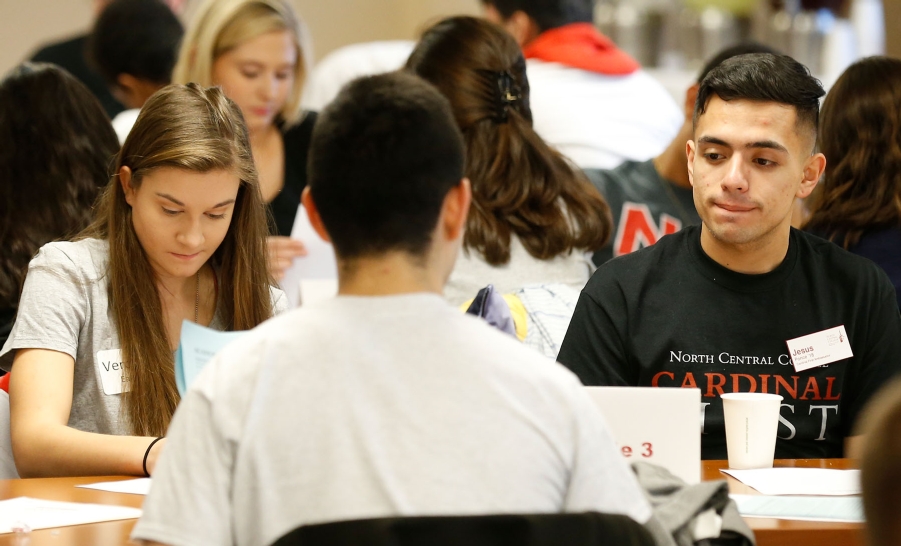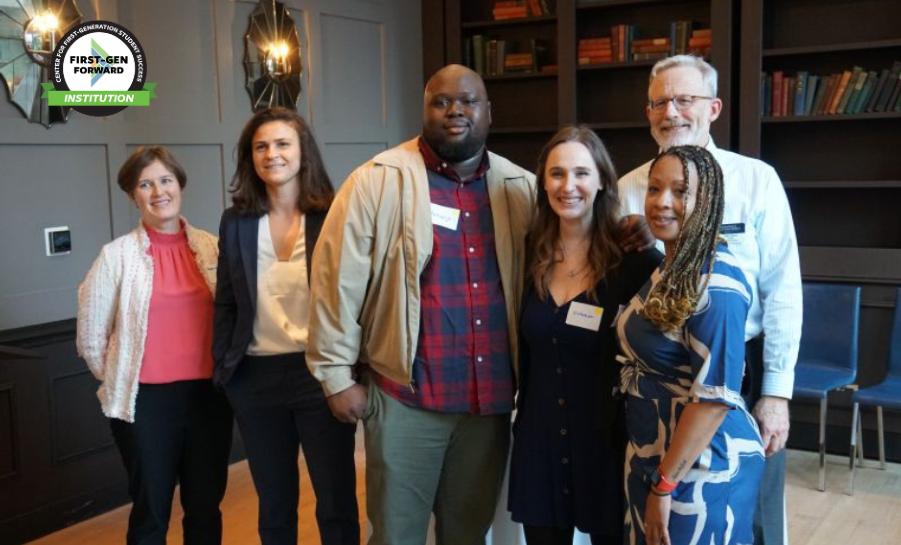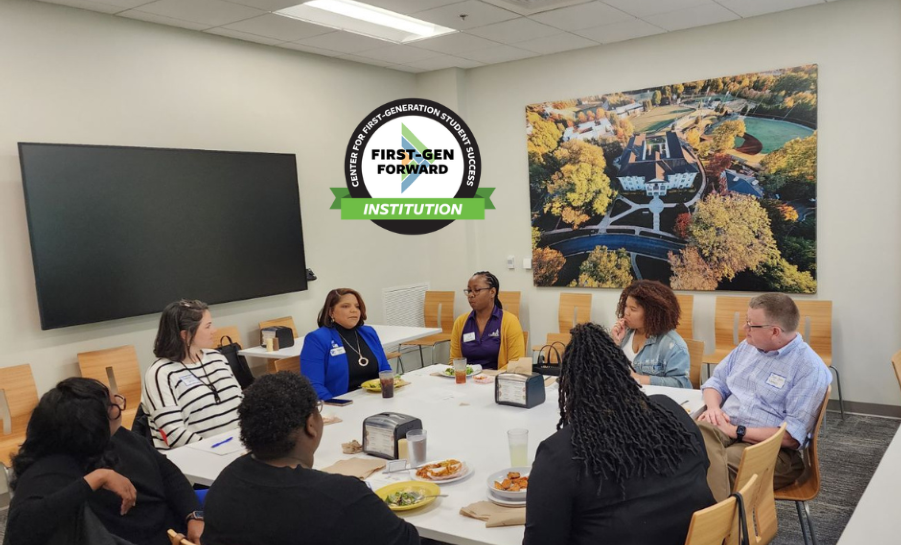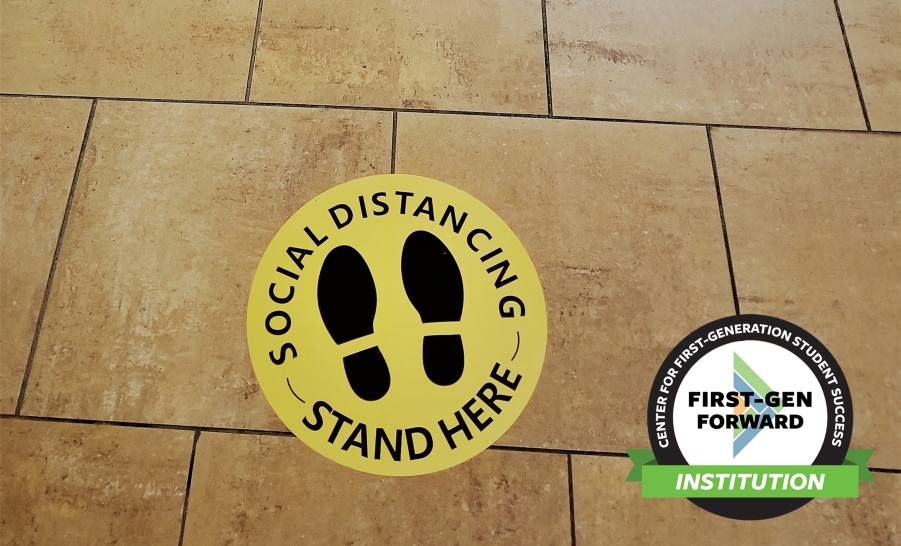Ways to make a difference: Building awareness and celebrating first-generation students
Angela Lamb M.A., / FirstGen Forward / October 23, 2019
The University of Iowa First-Generation Task Force, which was convened in spring 2017, was initially charged with examining ways the institution could better support first-generation students. In particular, the group was asked to consider the unique role that faculty and staff have in supporting first-generation students, which makes up about 25 percent of our undergraduate student body. The Task Force began its work by sharing research, best practices, and institutional data among its members, but discussions soon transitioned from sharing information within the Task Force to disseminating it across campus in an attempt to leverage the distinct responsibility that faculty and staff share in first-generation students’ success. However, before an institution can utilize a support system of well-intentioned, educated faculty and staff, those who form this system must first be made aware of its existence and become cognizant of their crucial role within it. This important recognition−that increased awareness is an imperative precursor to improved campus-wide support−formed the original foundation on which the Task Force has continued to scale its efforts to encourage and inform faculty and staff of their role in first-generation students’ success.
It is important to note that, before efforts to increasing campus awareness of first-generation students and the unique set of challenges they may face can commence, an institution must first be willing to acknowledge this population and fully understand and appreciate the importance of additional support systems designed specifically with their needs in mind. Fortunately, while the University of Iowa is certainly not immune to areas of improvement, struggling to gain institutional acceptance and executive-level administrative support for work aimed specifically at first-generation persistence and completion rates was not a barrier the task force faced. In addition, access to multiple sources of institutional data also contributed to our ability to proceed with relatively few problems, and we acknowledge this issue could potentially serve as a barrier for others.
Data on first-generation students, when compared to their peers, often articulates only their shortcomings, and initiatives designed solely to increase awareness of first-generation students can quickly and easily plunge into messaging that resembles a deficit mindset way of approaching first-generation student success. Because of this, it’s important that all efforts to increase awareness be linked with initiatives that also celebrate this identity and the numerous strengths and assets these students bring to campus. In addition, many students are completely unaware that they hold this identity or do not wish to divulge this “hidden” personal trait to their peers. Thus, parallel efforts that both increase awareness and affirm those who hold the first-generation identity are each vital components in institutional efforts to better support first-generation students and, when combined in thoughtful ways, are more likely to result in positive outcomes.
The University of Iowa chose to employ this “paired methods” approach in an effort to make a difference for first-generation students. The following are some examples:
- Ways to Make a Difference Handout: Institutional data and interviews with current first-generation students was the impetus behind the development of what is currently referred to as the “Ways to Make a Difference” handout. This document, which was the task force’s first major project, provides context and serves as an introduction to first-generation students at the University of Iowa; it gives insight on how the UI community might better understand and positively influence our first-generation students' experience.
- 1stGen@Iowa Initiative: The 1stGen@Iowa initiative aims to bring awareness to campus and work towards a strategic, collective approach to celebrating and supporting first-generation students. While the First-Generation Task Force serves as the foundational basis of this important initiative, the movement is campus-wide and relies on institutional commitment from key leaders and multiple campus partners for success. 1stGen@Iowa, which functions as an umbrella initiative to multiple other projects, seeks to inform and educate the campus community, support first-generation students in their academic and career endeavors, and ensure that students ultimately succeed at The University of Iowa.
- Campus-Wide Celebrations: The University of Iowa’s participation in the 2018 National First-Generation College Celebration through a weeklong series of events proved an important launch point for future celebratory efforts. This included the distribution of over 2,000 bright yellow and blue t-shirts (all worn by faculty, staff, and students on the first Thursday of the fall 2019 semester) as well as the establishment of the 1stGen@Iowa Awards, which will be presented at the UI’s first annual First-Generation Student Awards and Recognition Ceremony on Friday, November 8th. In 2019, the University of Iowa will again participate in the national celebration throughout the entire week of November 3 – 8, beginning with a UI Student Government hosted summit and closing with the awards ceremony on Friday.
So, what’s next for the University of Iowa? We plan to continue to find ways to make a difference for our first-generation students through initiatives that celebrate and increase awareness of the first-gen identity, educate faculty and staff, provide mentoring opportunities, and increase students’ sense of belonging. We will also continue to move “first-gen forward” as we help UI students realize their academic and career goals and work to ultimately become the institution of choice for first-generation students in the state of Iowa.
To learn more visit: https://firstgen.uiowa.edu.






